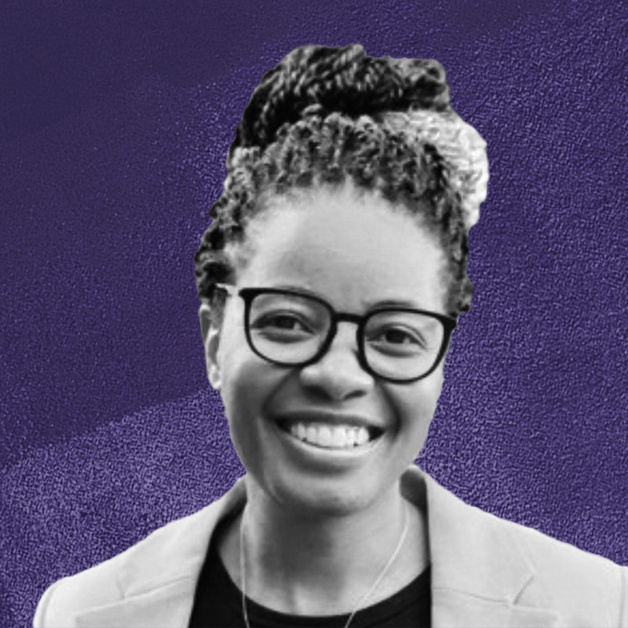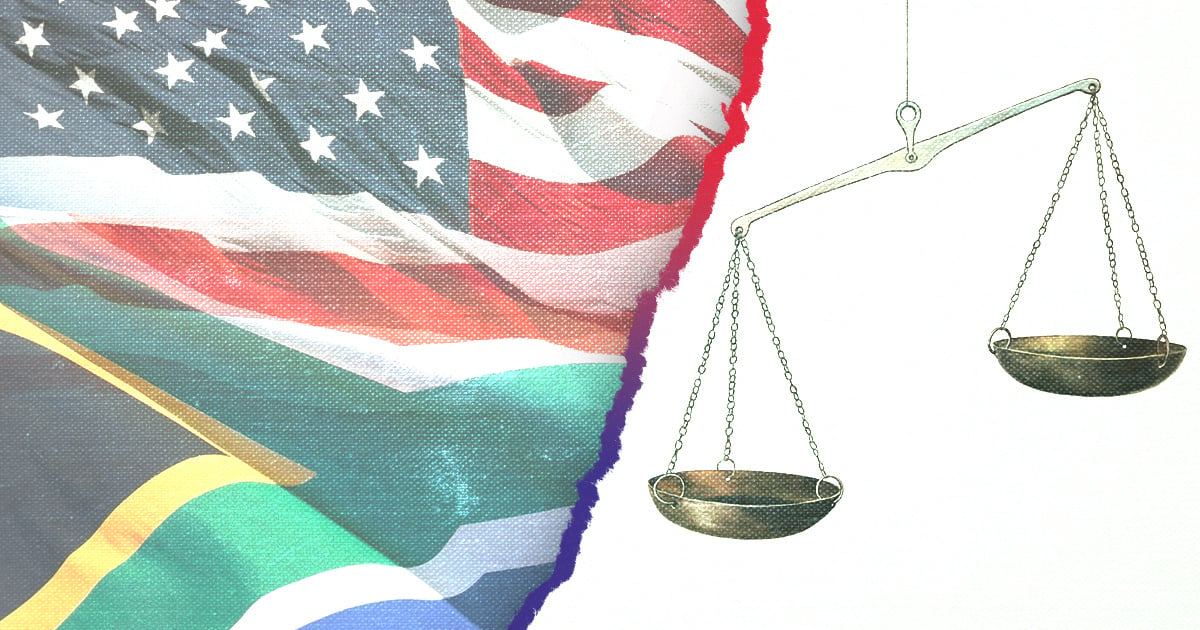
Kogod School of Business
When Ezachia Ngcobo (Kogod ‘24) arrived on the AU campus from her native South Africa, she had no idea she’d contribute to cutting-edge research that could make a significant difference back home.
“It was a long journey to Kogod,” she now recalls, thinking back on her arrival in DC last fall.
Shortly after beginning the year-long pursuit of her MS in Marketing degree, Ngcobo joined forces with Kogod Department of Marketing professor Ron Hill to explore how racial bias fuels economic inequities.
Specifically, the duo set out to compare racial dynamics in the US and Ngcobo’s home country, South Africa, and how, in both countries, those dynamics influence key sectors of the economy, from home ownership to food insecurity and access to critical goods.
It was a natural collaboration between Ngcobo, who came to AU with a background in public health, and Hill, a longtime scholar of impoverished consumer behavior, marketing ethics, and public policy.
What started as a research concept from Hill quickly grew.
“The more we talked about how race plays out in South Africa, specifically in the marketplace, the more I really did start to see a connection and how we could go forward,” Ngcobo says. “It was a true collaboration.”
Today, Ngcobo’s name appears alongside her professor’s on their published paper, Consumption Adequacy and Racial Discrimination: An Exploration and Comparison between the US and South Africa.
The work features an in-depth analysis of consumer dynamics in both countries and examines the origins of inequality in both economies today.
Despite the excess of a variety of goods and services in the marketplace, the exclusion of certain populations from these services remains the norm for many Black communities in South Africa and the United States."

Ezachia Ngcobo and Ron Hill
Those barriers remain prevalent in both countries, which is noteworthy, considering the dramatically different demographics in each: The US Black population is about 14 percent of the total population, according to the Pew Research Center. However, in South Africa, the Black population represents a majority by a significant margin.
“We saw some historical precedence that seemed to parallel one another, even though the percent of the population that Black people were in both places is very different,” Hill explains. “Race plays out heavily in both spots.”
The similarities uncovered in the US and South Africa dynamics were similarly striking for Ngcobo.
“I just thought, geographically, they’re so far from each other, yet they were facing similar dire situations,” she says. “That’s what I found quite interesting and very fascinating when I was doing the research.”
In many ways, their work came to fruition earlier this month.
Ngcobo presented their research at the American Marketing Association’s Marketing and Public Policy Conference in DC, outlining their findings and making policy recommendations to alleviate some of these inequities.
For Ngcobo, it was the culmination of a year’s work—and a valuable learning opportunity gained not just from collaborating with a faculty member but also from working on a project that, quite literally, hits close to home.
It’s not just about the teachings faculty push in class. It’s also how they accept you as an individual.”

Ezachia Ngcobo
MS in Marketing Student, Kogod School of Business
For his part, Hill hopes this project will serve as a launching pad for future collaboration with students, all in the interest of affecting change in another part of the world.
“I would like, over the next five or ten years, for people in different parts of Africa to see American University’s business school—and this particular program—as a way to improve the quality of life for their citizenry,” Hill says. “I think we can make a major change.”
As for Ngcobo, having recently walked across the stage at commencement, she hopes to soon pursue her doctoral degree. She’ll be armed with valuable experience from a year in DC, wherever that takes her.
“It really kind of solidified that I did choose the right school,” she says. “It’s exceeded my expectations.”
